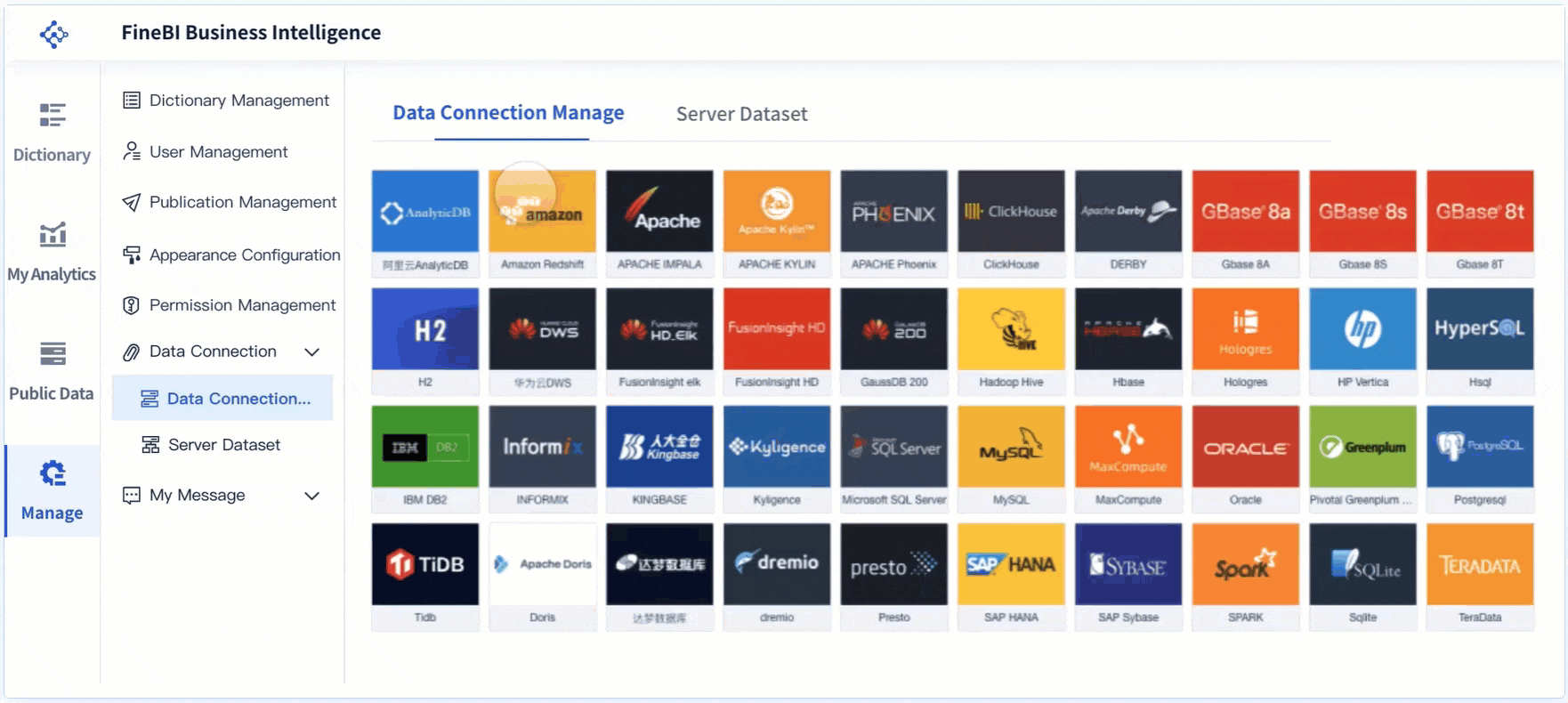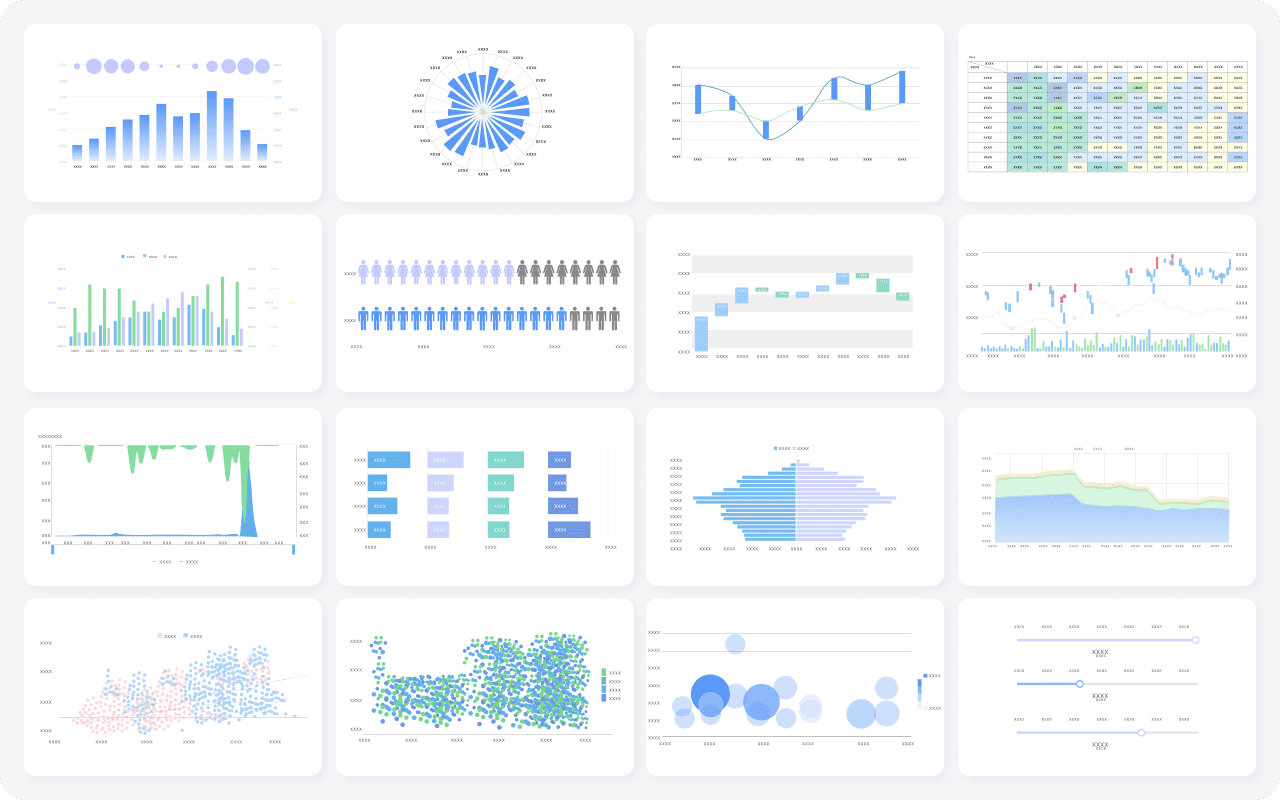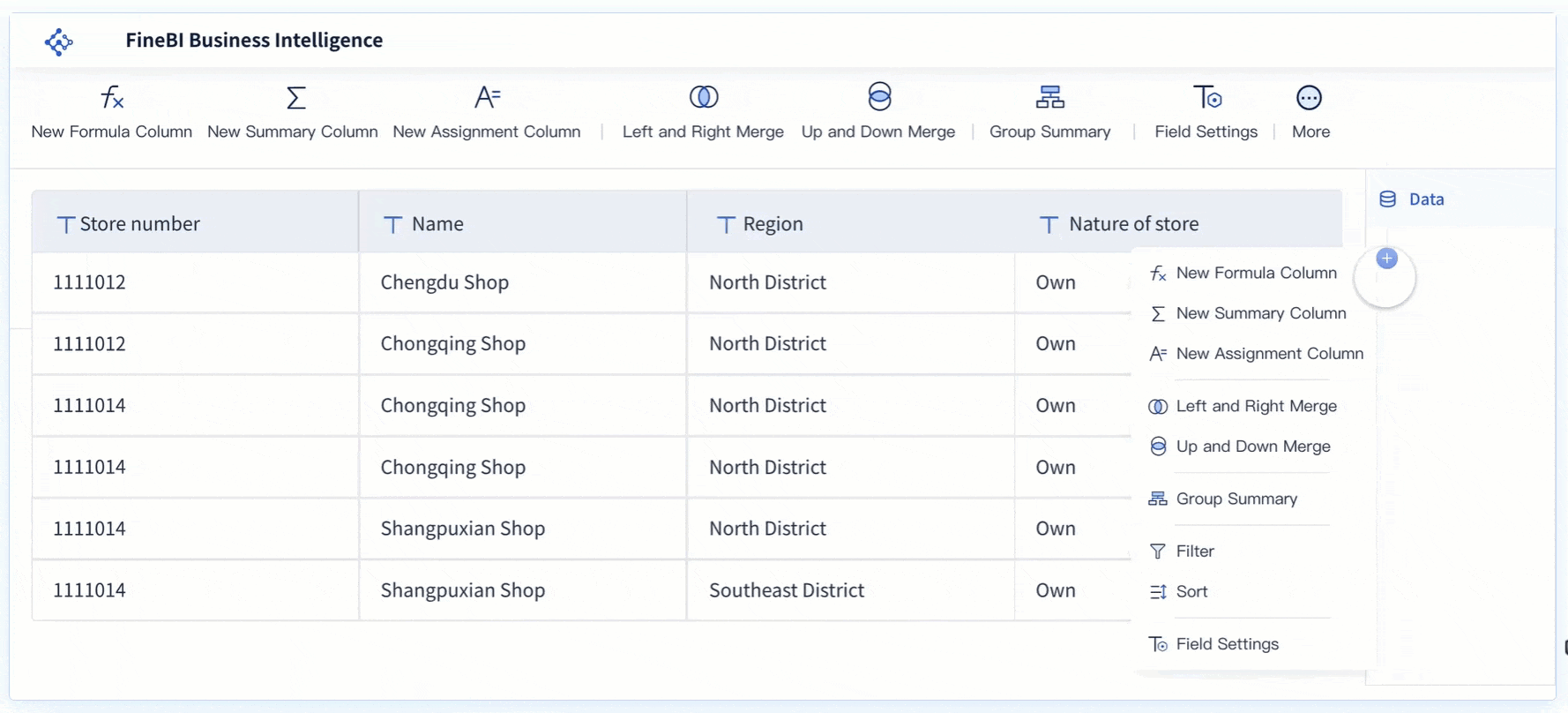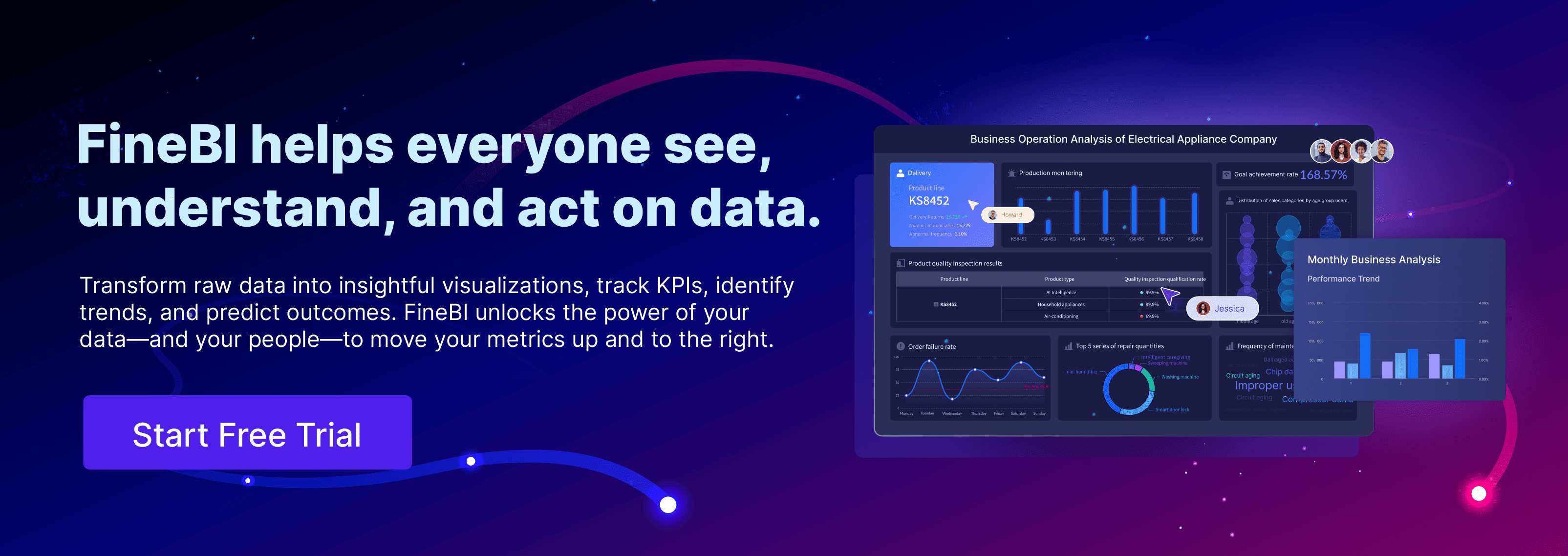Embedded analytics is a technology that integrates analytics capabilities directly into business software applications. You access data insights within the tools you use every day, without switching between platforms. This approach brings analytics into your workflow, making data analysis seamless and immediate.
The demand for embedded analytics continues to grow. The market is projected to reach $77.58 billion in 2025. By next year, 80% of organizations will rely on self-service analytics instead of traditional dashboards. Embedded analytics enables you to make faster and more accurate decisions, improving operational efficiency and reducing errors.
You benefit from real-time insights and streamlined processes. Embedded analytics helps both technical and business users respond quickly to changing business needs.

Embedded analytics brings analytics and data visualizations directly into your business applications. You do not need to leave your workflow or switch to another tool. Leading industry sources describe embedded analytics as the integration of data analysis and visualization into everyday software. You access insights within the tools you already use, which increases engagement and makes analytics more accessible.
You benefit from several core components and functionalities that define embedded analytics in modern business software:
| Core Component/Functionality | Description |
|---|---|
| Integration of Analytical Capabilities | Embedded analytics integrates reporting, data visualization, and predictive analytics into applications. |
| Seamless Access to Data | You analyze data directly within applications, eliminating manual data handling. |
| Enhanced User Experience | Analytics features appear in familiar environments, increasing user engagement. |
| Democratization of Data | All employees make data-driven decisions, fostering a data-centric culture. |
| Real-Time Data Analysis | You make informed decisions based on the latest information, crucial for fast-paced industries. |
| Comprehensive Solution | Data analysis capabilities enhance decision-making processes in existing applications. |
You experience self-service capabilities, real-time analytics, UI customization, workflow automation, and strong security measures. Embedded analytics empowers you to explore data independently and make decisions faster.
You notice key differences between embedded analytics and traditional business intelligence platforms. Traditional BI tools focus on data and provide basic dashboards and reports for internal decision-making. You often need technical expertise to build reports and dashboards. This process can be time-consuming and frustrating.
Embedded analytics offers a customizable user experience. You access insights directly within your workflow, making analytics feel like a native part of your platform. You do not need advanced technical skills. Both internal employees and external customers benefit from direct access to relevant insights.
Consider the business impact:
| Aspect | Embedded Analytics | Traditional BI |
|---|---|---|
| User Empowerment | Self-service capabilities for users | Often requires IT or technical expertise |
| Decision-Making | Enhances timely decision-making | Complex processes hinder timely decisions |
| Productivity | Increases productivity and saves time | Can be time-consuming and frustrating |
| Data-Driven Culture | Fosters a data-driven culture | Relies on insights from data analysts |
| Insight Accessibility | Direct access to relevant insights | Involves navigating complex tools |
Embedded analytics platforms simplify analytics for everyone. You make decisions faster, increase productivity, and foster a data-driven culture. You do not rely on IT for every report or dashboard. Embedded analytics transforms how you interact with data and empowers you to act on insights in real time.
Embedded analytics delivers measurable value to organizations by transforming how you access, analyze, and act on data. You gain real-time decision-making power, improved productivity, and greater user empowerment. Advanced embedded analytics solutions, such as FineBI, help you unlock actionable insights directly within your daily workflow. This section explores the core benefits you can expect from adopting embedded analytics tools.
You need to make decisions quickly in today’s fast-paced business environment. Advanced embedded analytics gives you access to real-time data and analytics features right inside your business applications. You no longer wait for static reports or switch between multiple platforms. Instead, you see the latest data insights as you work, which leads to faster and more accurate decisions.
Real-time analytics integration means you always base your choices on the most current information. This approach streamlines workflows and reduces the time spent switching between applications.
| Benefit | Impact on Operational Efficiency |
|---|---|
| Streamlined workflows | Reduces time spent switching between applications |
| Immediate actionable insights | Provides relevant data at the moment of decision-making |
| Data democratization | Empowers all users to make data-informed decisions |
| Reduced IT management overhead | Allows IT to focus on integrated solutions |
| Fostering a data-driven culture | Makes analytics a part of daily work, enhancing decision-making norms |
You see these benefits in many industries. For example, logistics managers use real-time analytics to optimize routes and prevent bottlenecks. Financial institutions rely on advanced embedded analytics for fraud detection and market analysis. Retailers deliver personalized shopping experiences by analyzing customer behavior in real time. These use cases show how embedded analytics solutions drive operational efficiency and competitive advantage.
A recent survey found that 39% of organizations use embedded analytics to monitor and improve productivity. About 20% of customers turn to embedded analytics primarily to make better decisions. You benefit from AI-driven summaries and in-product workflows that deliver insights exactly when you need them, not after the fact.
Advanced embedded analytics platforms improve your experience by integrating analytics features directly into the applications you already use. You do not need to export data or switch to a separate analytics tool. Instead, you access actionable insights instantly, which makes your workflow smoother and more intuitive.
| Application Type | User Satisfaction Impact |
|---|---|
| With Embedded Analytics | Significantly enhances user satisfaction |
| Without Embedded Analytics | Lower user satisfaction compared to those with |
You notice higher user adoption and engagement because analytics becomes a natural part of your daily tasks. Applications with embedded analytics lead to faster, more informed decisions. Improved customer satisfaction, loyalty, and retention often follow. High customer satisfaction also correlates with increased annual recurring revenue and customer lifetime value.
Embedded analytics eliminates the need to switch between different tools. You analyze live data within your CRM, financial app, or e-commerce platform, enabling immediate action.
This seamless experience fosters a data-driven culture. You and your team can rely on advanced embedded analytics to provide the right information at the right time, making every interaction more meaningful and productive.
FineBI stands out as an advanced embedded analytics platform that empowers you to perform self-service analytics without relying on IT. You use a user-friendly, drag-and-drop interface to create reports and dashboards. This approach democratizes analytics, allowing everyone in your organization to explore data and generate data-driven insights.
| Feature | Description |
|---|---|
| User-friendly interface | FineBI offers a drag-and-drop interface for users of all skill levels. |
| Interactive dashboards | The platform provides interactive dashboards for enhanced visualization. |
| Self-service capabilities | Users create reports and dashboards independently, promoting data democratization. |
You reduce IT bottlenecks because FineBI separates the computing engine from the business layer. This design enhances stability and minimizes the impact of technical issues on your operations. FineBI also provides a unified data access layer, which simplifies data extraction and synchronization. Visual management tools make daily operations easier and support strong enterprise governance.
FineBI enables you to connect to multiple data sources, process and clean data, and build interactive dashboards—all without writing code. You gain the freedom to analyze data on your own terms.

With FineBI, you support enterprise-level data permission control. You assign access and permissions based on roles and departments, ensuring sensitive data remains secure. FineBI’s advanced embedded analytics features help you track KPIs, identify trends, and even use predictive analytics to forecast future outcomes.
You experience measurable benefits when you implement embedded analytics solutions like FineBI:
Advanced embedded analytics solutions like FineBI transform how you interact with analytics. You move from static reports to dynamic, real-time data exploration. You empower every user to participate in data-driven decision-making, which leads to better business outcomes and a stronger competitive position.

You interact with embedded analytics platforms through a structured workflow that brings analytics directly into your daily business applications. This process ensures you gain insights quickly and securely, without leaving your core tools. FineBI, a leading embedded analytics platform, follows a four-stage process: data integration, processing, visualization, and sharing.
You start by connecting to multiple data sources. Embedded analytics platforms like FineBI support databases, cloud warehouses, and APIs. This integration lets you unify data from across your organization. You use data validation and cleaning tools to ensure accuracy and consistency. These steps help you avoid errors and maintain high data quality. You can see the typical workflow stages in the table below:
| Stage | Description |
|---|---|
| Analytic developers | Create content and ensure data is ready for analytics. |
| Software developers | Integrate analytics into applications, focusing on security and compliance. |
| QA / testing | Test the integration and verify report accuracy. |
| Data preparation | Clean and structure data for analysis. |
| Marketing readiness | Educate users about the new analytics tools. |
| Beta rollout | Test user experience and training. |
| Phased general rollout | Launch analytics to all users in stages. |
You benefit from best practices such as data validation, cleaning, and monitoring. These practices ensure your analytics solutions deliver reliable results.
Embedded analytics platforms provide interactive dashboards and real-time data visualizations. You explore data using dynamic charts, filters, and drill-downs. This approach helps you uncover trends and answer questions instantly. Customizable dashboards let you align analytics with your brand and business needs. You engage with analytics directly in your workflow, which increases productivity and user satisfaction.
| Feature | Description |
|---|---|
| Customizable Dashboards | Align analytics with your brand and workflow. |
| Real-Time Insights | Access up-to-date information for faster decisions. |
| Interactive Visualizations | Explore data with dynamic charts and filters. |

You need secure access to analytics. Embedded analytics platforms use role-based permissions, multi-tenant architecture, and data masking to protect sensitive information. You assign roles such as Admin, Analyst, or Viewer to control who can see or edit data. Row-level and column-level security ensure users only access relevant information. Platforms like FineBI also support compliance with standards such as GDPR, HIPAA, and SOC 2. Logging and audit trails help you monitor data access and maintain trust.
| Mechanism | Description |
|---|---|
| Role Definitions | Assign user roles to control access. |
| Row/Column-Level Security | Restrict data visibility based on user roles. |
| Logging Access | Track data access for compliance and security. |
| Compliance Standards | Meet GDPR, HIPAA, and SOC 2 requirements. |
You gain confidence knowing your analytics solutions protect your data and support regulatory compliance. Real-time updates and secure sharing help you make informed decisions while maintaining control.

You see embedded BI transforming industries by bringing analytics directly into daily operations. Organizations across manufacturing, finance, healthcare, and SaaS rely on embedded analytics to drive efficiency and improve outcomes. The adoption rate of embedded BI continues to rise, with 67% of the global workforce now having access to BI tools. Sectors such as manufacturing, business services, and financial services lead in adoption, reflecting the growing importance of analytics in these fields.
In manufacturing, embedded BI helps you optimize supply chains and production processes. You use predictive maintenance to reduce unplanned downtime and extend machinery lifespan. Quality control and defect detection become more effective, improving product quality and customer satisfaction. You can also manage inventory and supplier performance with greater accuracy. Demand forecasting aligns production with market needs, reducing waste and increasing profitability. Energy management and process optimization further enhance sustainability and throughput.
In finance, embedded analytics solutions simplify the analysis of large datasets. You track investments and revenue in real time, which supports better financial planning and risk management. Banks use embedded BI for fraud detection, risk assessment, and transaction monitoring. These analytics features help you identify suspicious activities quickly and make informed decisions about customer creditworthiness. Financial analysts benefit from having essential data from various sources in one location, streamlining reporting and improving accuracy.
Healthcare organizations use embedded analytics to improve patient care and operational efficiency. You access comprehensive patient information within existing medical record systems, reducing the time spent searching for data. Embedded BI enables you to generate reports directly from these systems, supporting faster, data-driven decisions about treatment plans and billing. Healthcare professionals rely on analytics solutions to monitor patient outcomes and optimize resource allocation.
Retailers leverage embedded BI to analyze point-of-sale transactions and inventory levels. You evaluate sales performance and staff efficiency by aggregating data from multiple sources. Embedded analytics use cases in retail include customer segmentation, personalized marketing, and demand forecasting. These capabilities help you respond to market trends and improve customer satisfaction.
SaaS companies integrate embedded analytics into their platforms to provide clients with actionable insights. You empower users to explore data, create custom dashboards, and monitor key metrics without leaving the application. This approach increases user engagement and adds value to your software offerings.
The embedded analytics market is projected to reach $182.7 billion by 2033, expanding at a 12.82% CAGR. High demand in healthcare and finance drives this growth. You see embedded analytics use cases expanding as organizations seek to make data-driven decisions faster and more efficiently.
Embedded BI enables you to act on real-time data, uncover trends, and respond to challenges as they arise. You gain a competitive edge by integrating analytics into your core business processes.
| Industry | Embedded Analytics Use Cases |
|---|---|
| Manufacturing | Predictive maintenance, quality control, supply chain optimization, demand forecasting |
| Finance | Fraud detection, risk management, real-time monitoring, financial planning |
| Healthcare | Patient care optimization, billing, resource allocation, report generation |
| Retail | Sales performance analysis, inventory management, customer segmentation |
| SaaS | Custom dashboards, user engagement, client-facing analytics |

You can see the impact of embedded BI through the experience of BOE Technology Group, a global leader in the IoT and semiconductor display industry. BOE faced challenges with fragmented data, inconsistent metric definitions, and limited data utilization. The company needed a solution to unify data, standardize metrics, and enable data-driven decision-making.
BOE implemented FineBI to address these challenges. FineBI provided dynamic and interactive data visualizations, allowing you to act on insights in real time. The platform enabled agile analytics and self-service data analysis, empowering users across the organization to independently explore and analyze data. By integrating data from multiple sources, FineBI ensured consistency and reliability, which are crucial for accurate reporting and decision-making.
You benefit from FineBI’s core features, including data management, data visualization, and enterprise-level application. These features enhance data reliability and minimize duplicate datasets. FineBI’s enterprise-grade governance supports secure data sharing and role-based access, protecting sensitive information while promoting collaboration.
BOE built a comprehensive data warehouse and standardized over 250 metrics across different domains. The company developed KPI dashboards and cross-factory benchmarking tools, enabling centralized monitoring of business performance. You can identify risks early and take timely action using these analytics solutions.
The results speak for themselves. BOE achieved a 5% reduction in inventory costs and a 50% increase in operational efficiency. The project accelerated digital transformation and improved decision-making efficiency. FineBI’s embedded analytics capabilities provided strong data support for executive decisions and helped BOE maintain its leadership in a competitive industry.
FineBI demonstrates how embedded BI can transform your organization. You gain actionable insights, improve operational efficiency, and foster a culture of data-driven decision-making.

Embedded analytics transforms how you approach analytics by delivering insights directly within your workflow. You gain improved decision-making, higher user adoption, and cost savings, as shown below:
| Benefit | Description |
|---|---|
| Improved Decision-Making | Contextual insights speed up data-driven decision making. |
| Increased User Adoption | Self-service dashboards boost engagement. |
| Cost Savings | Lower development costs and faster ROI. |
Platforms like FineBI help you unlock real-time analytics and drive business growth. When you evaluate embedded reporting solutions, consider vendor recognition, integration, and ongoing support. Adopting embedded analytics positions you for success in a data-driven world.


The Author
Lewis
Senior Data Analyst at FanRuan
Related Articles

Self-Service Analytics Defined and Why You Need It
Self-service analytics lets you analyze data without IT help, empowering faster, data-driven decisions and boosting agility for your business.
Lewis
Jan 04, 2026

Best Self-Service Tools for Analytics You Should Know
See which self-service tools for analytics let business users access data, build dashboards, and make decisions faster—no IT help needed.
Lewis
Dec 29, 2025

Understanding Predictive Analytics Services in 2026
Predictive analytics services use data and AI to forecast trends, helping businesses make informed decisions, reduce risks, and improve efficiency in 2026.
Lewis
Dec 30, 2025